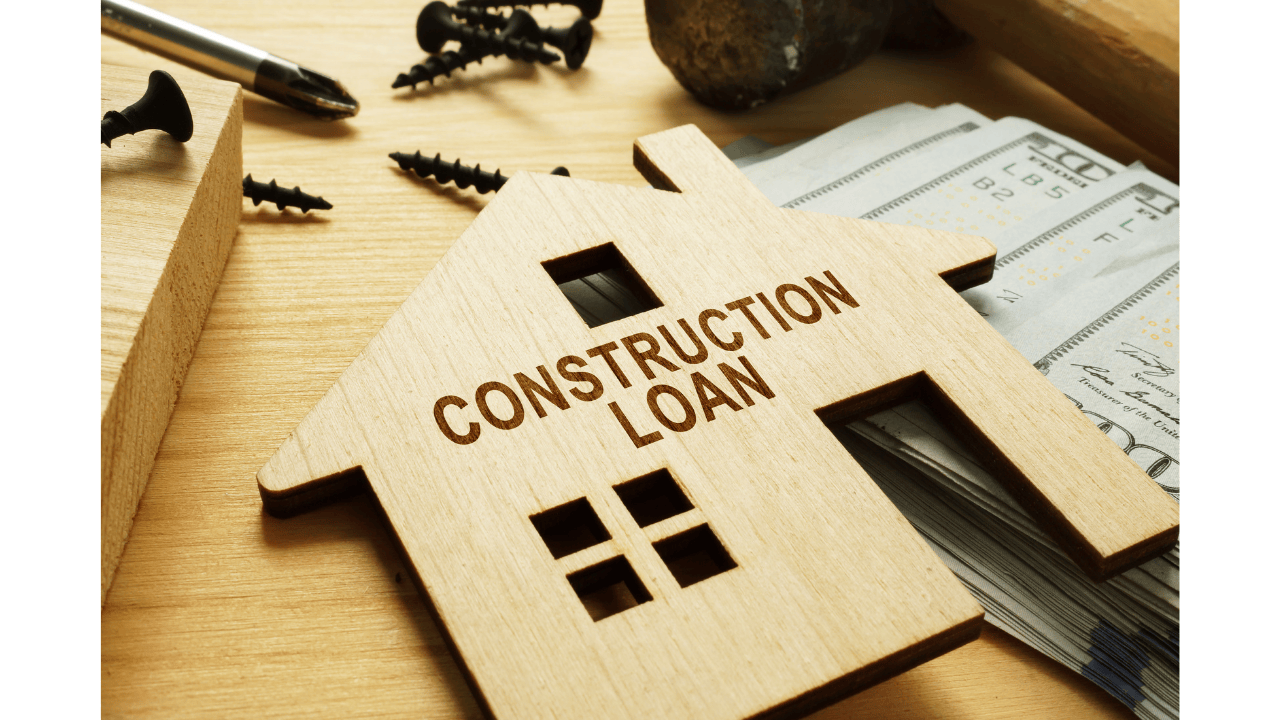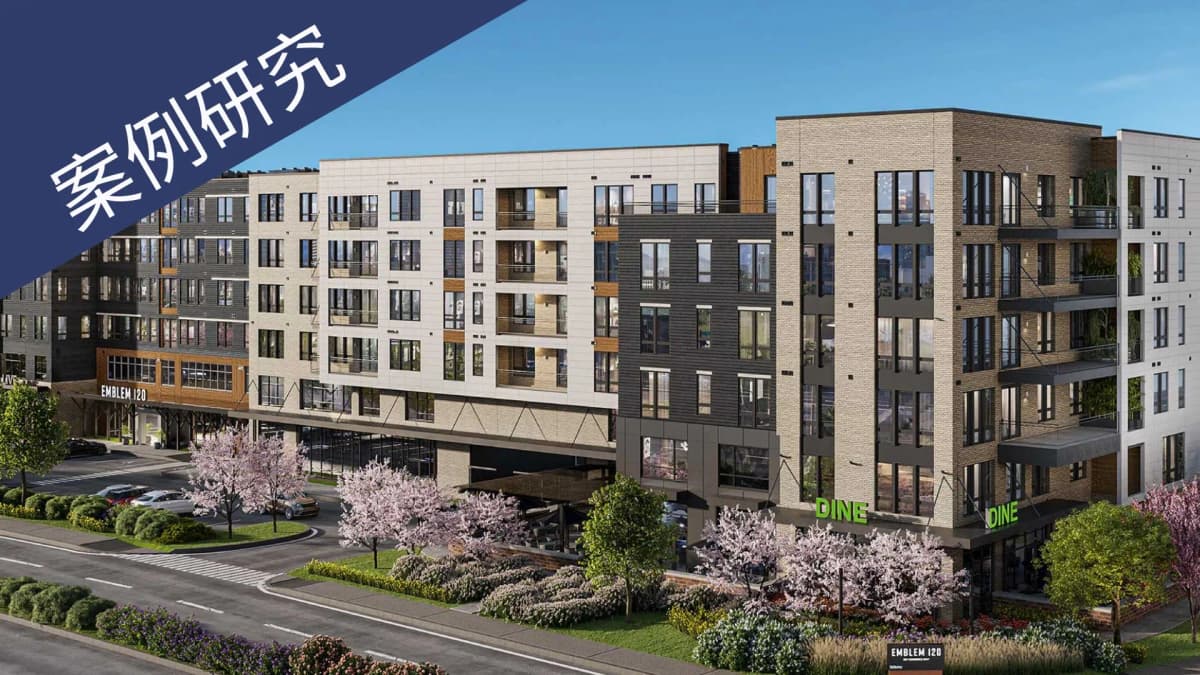The Ultimate Guide to Commercial Construction Loan
Taking commercial construction loans is a common way for contractors to jumpstart their projects. What is commercial construction loan? How does it work? What are the options? Let's find out.
by Sheldon Huang
|
When it comes to conducting construction projects, funding and finances are inevitable factors that decide a project’s outcome. Without proper financing, one can have the best crew, the most elaborated plan, the best equipment, and still end up with a project that’s decent at best.
For this reason, people working in the industry often take measures to make sure money becomes a helpful tool instead of an impediment. One of the measures is loaning money.
Loaning money, even for people outside of the industry, comes with its own risks. For people working in the industry and using the money for commercial purposes, the risk is even greater. Knowing how to make every penny count becomes one of the most important challenges.
This blog will cover the ABCs of construction loans and make managing construction finances less confusing in an informative manner.

Applications of Construction Loan
To properly utilize construction loan, understanding the applications of it is a necessary prerequisite. In general, a construction loan can be used for several occasions:
- Labor costs
- Purchasing equipment
- Materials
- Purchasing land
- Bidding
- Permits
- Renovating/remaking an existing building
Understanding Commercial Construction Loan
One major difference between commercial construction loan and regular loan, is the different ways at which the borrower receives payments. Showing some resemblance to lines of credit, the loan lender transfers the loan to the borrower when needed. More specifically, at each stage/milestone of the project.
For example, the lender would receive a payment when commencing the project, another payment when the foundation is done, another when the framework is done, and so on. Because of this, a commercial construction loan requires more inspection than other loans.
The repayments of a commercial construction loan also works differently than most other loans. The borrower of the loan is only obligated to return the interest of the loan. Lenders, in the vast majority of cases, do not ask for repayment of the loan itself before the construction is finished.
Additionally, as loan borrowers receive payments in a multiphasic nature, lenders usually only ask for the interests of the amount that has already been withdrawn.

Types of Commercial Construction Loan
As there are numerous different aspects in a construction project, there are different types of commercial construction loan, separated by their applications:
Land Development Loans
As making a piece of land construction-ready costs significantly, Land Development Loans are dedicated to accelerating this part of construction. Costs for bulldozing, landscaping, and etc are covered by this type of loan.
Construction-to-Permanent Loans
Typically, a construction project needs two separate loans, one for the construction phase and one for the post-construction permanent phase. This type of loan converts construction loans into mortgages with a fixed interest rate, preventing businesses from having to take two separate loans and being affected by shifts in interest rates.
Construction-only Loan
Different from Construction-to-Permanent Loans, Construction-only Loans only cover the expenses of construction. The business would need to repay the entire loan in one lump sum or take a mortgage after the construction.
Renovation Loan
This type of loan is similar to other loans, but only targeting renovations, remakes, and/or improvements to existing structures. Renovation loans typically have more competitive interest rates because of the existing structure. It is easier for lenders to make estimates on the value and the cost of the project, decreasing the risk the lenders are on.
Sources of Commercial Construction Loan
Like many other products and services, there are different types of commercial construction loan for different clients with different needs.
The Small Business Administration (SBA) 504 and 7(a) Loan
The Small Business Administration (SBA) 504 and 7(a) Loan are popular choices among contractors/builders. The 504 loan is dedicated for “business growth and job creation,” while the 7(a) loan is a “multiple purpose loan,” with its applications listed here by the SBA. The SBA loans have competitive interest rates because of their strict criteria and requirement of collateral. The criteria include:
- An operating business
- For-profit business
- Business based in the U.S
- Considered a small business based on SBA size standards
- Not ineligible under SBA standards
- Out of other financing/loaning options
- Has high credit and ability to repay the loan
- Collateral required for loans above $350,000
Traditional Banks
Loaning from banks is the other popular option right next to SBA loans. As the SBA loans are administered by banks as well, bank loans are similar to SBA loans in many ways. Loaning from banks also requires the borrower to pass a strict criteria and have a good credit for it.
Banks also provide competitive interests. Bank loans are suitable options for those who have worked in the industry for a while and have good experience and loaning credit.
Ground Up Commercial Construction Loan (Private Lenders)
Loaning from private lenders (hard money lenders) is quite different from the other two options. One of the biggest strengths of loaning from private lenders is that the payment gets through fast. They’re also typically less demanding when checking a borrower’s credit. However, as private lenders take on more risks, the down payment and interest rates may not be as friendly as other requirements of loaning from a private lender.
An example of a private lender would be the Ground Up commercial construction loan. As a part of the Capital Funding Financial, the Ground Up Construction Loan Program aims to "provide a streamlined financing solution to build single family, multi-family, and mixed use projects which are entitled or shovel-ready."
Demanding little prerequisite, applying Ground Up Commercial Construction Loans for townhomes, condominiums, and Planned Unit Developments is a viable choice for those who needs only money to start working.

Commercial Construction Loan Requirements
As any other loans do, borrowers need to prepare documents in advance to apply for a loan. This is to prove that the borrower can be responsible for their own loans and to protect the lender.
Depending on the identity of the lender, the inspection and demands for these documents may differ amongst lenders. However, there are certain documents that most, if not all, lenders ask for before issuing a loan. Here are some of the most common requirements that borrowers must meet in order to go through a smooth loan process:
Financial records
Financial records are one of the most important documents in the world of loaning, both business and personal. It allows the lender to get hold of the financial status of the borrower. Lenders are morally obligated to reject those whose financial records suggest their inability to repay the loan. This prevents unnecessary troubles or even lawsuits between lenders and borrowers. It is a measure to protect both parties.
Project plans
When taking a loan for commercial construction, most lenders would require the borrower to show the plans for construction. This allows the lender (or personnel in the lender’s party) to judge the legitimacy and reliability of the project. This also allows the lender to check for the value of the project.
Debt-to-income Ratio (DTI)
The debt-to-income ratio (DTI) is a measurement of the business’s financial health. Similar to financial records, the DTI allows lenders to understand the status of the business. A healthy DTI represents the business’s ability to manage its financial resources, both incomes and expenses.
Credibility
For SBA and bank loans, credibility is a deciding factor. As credibility reduces the risks that the lenders are taking, loans which require high credibility usually come with more competitive interest rates and lower down payment. It is thus important for contractors/builders to maintain a high credit rating. One common system of measuring credibility is through the “FICO Score.”
Repayment plan
Last but not least, most lenders require the borrower to have a repayment plan, and will only issue the loan once both parties come to an agreement. Repayment plans are often inspected respective to the borrower’s financial records and DTI.
Conclusion
It is crucial for commercial contractors/builders to understand how commercial construction loan work. Thoroughly understanding commercial construction loan enables commercial contractors/builders to better manage their resources and make informed decisions.
Frequently Asked Questions
Q: What is the best loan for commercial construction?
As mentioned, the Ground Up commercial construction loan is a robust commercial construction loan program. For its relatively more forgiving requirement and competitive interest rate, it is a reliable source of commercial construction loan.
The SBA 504 and 7(a) loans, and loans directly from banks are also powerful options to consider for more creditworthy contractors who meet all their requirements.
Q: What is a reasonable percentage of interest rate/down payment?
For interest rates, you would typically aim for somewhere around 4-15%. As of down payments, the reasonable percentage would be 10-40%.
Keep in mind that interest rates and down payments can differ between different loan lenders. The borrower’s credit, project value, and other risks the lender is taking can also cause a shift in interest rates and down payment amounts.
Q: What is CMBS?
A counterpart to RMBS (residential mortgage-backed securities), CMBS is short for commercial mortgage-backed securities. They are a type of financial instrument that are backed by commercial structure mortgages.
Securing funding is just the first step. Learn how effective inventory management can transform your construction projects in Building Success: How Effective Inventory Management Transforms Your Construction Projects.


